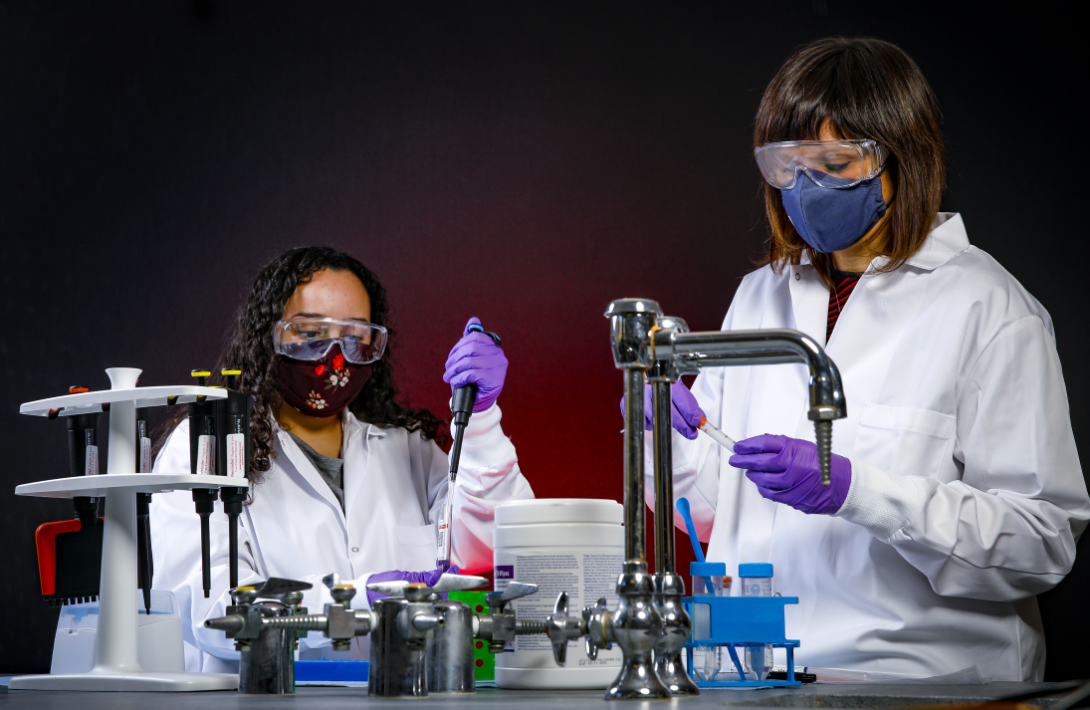Researcher uses gut-brain connection to unlock perinatal depression secrets

Text block one Heading link

If you believe what love songs, poems, and romantic comedies have to say, then you probably think our brains are controlled by our hearts. But scientists have learned that in reality, our brains are often controlled by our stomachs and the bacteria that live there.
Using this gut-brain connection, Richard and Loan Hill Department of Bioengineering Assistant Professor Beatriz Peñalver Bernabé is using a Building Interdisciplinary Research Careers in Women’s Health (BIRCWH) grant from the National Institutes of Health to investigate how the microorganisms, known as the microbiome, in an expecting mother’s stomach affect depression experienced during and after pregnancy.
To do this, Peñalver recruited a diverse group of more than 150 pregnant women in the Chicago area, including 75% of women from Black and Hispanic communities, to donate a stool sample in every trimester of their pregnancies and after delivery. Each sample provides the research team with a snapshot of the composition of the gut bacteria at that point in the pregnancy. Peñalver said they are combining the data with other biometric information, including blood and mental-health surveys, to see if the mothers are feeling stressed, anxious, or depressed at any given time. The current funding will enable to follow women monthly and investigate other samples as well.
“We know the bacteria changes during pregnancy, and we know people who are depressed have different bacteria in their gut, but we don’t know how that happens in pregnancy,” Peñalver said. “Most studies have been done outside of pregnancy, so we know very little. From an engineering perspective, this study is super exciting because pregnancy is a dynamic process, it changes a lot and there are so many variables, so for a nerdy person like me it is a great challenge.”
From this monumental data challenge could emerge huge benefits for women’s reproductive and mental health, Peñalver said. It is estimated that more than 95 percent of women who have perinatal depression—depression during pregnancy or after delivery—do not receive adequate care. Reasons for this include that many women are reluctant to tell family and healthcare providers because of the stigma around depression, lack of insurance or fear that some treatments can be harmful for the fetus.
Peñalver and her colleagues at the Bea Lab hope they will be able to use their research to create treatments for depression using prebiotics, probiotics or other natural methods that will return the gut bacteria to a healthy state without harming the fetus. Peñalver added that the data could also be used to create an unbiased method to diagnose pregnant women who have depression so the field can stop relying on self-reported questionnaires that are biased by the women’s willingness to share their symptoms.
“This disease has a social stigma, we know women are very reluctant to disclose their mental health and in fact, a huge percent of women under-report their symptoms,” Peñalver said
The BIRCWH NIH grant is scheduled to run for two years, and Peñalver hopes to request an extension after that time to run a similar study on 300 additional pregnant women. She hopes the work will help to put a spotlight on women’s mental health.
“My dream is to [create] a giant database at UIC that we can use to help and serve women in the Chicago area,” she said.